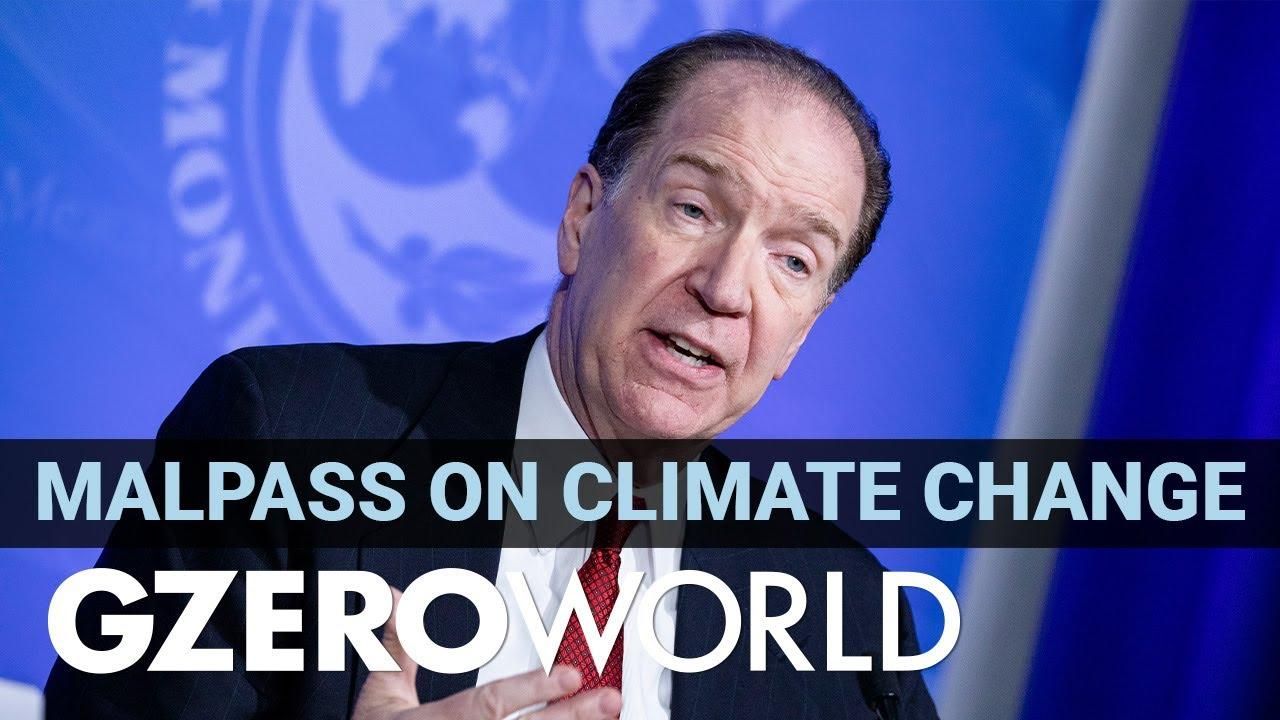
World Bank President David Malpass has come under a political firestorm over his views on climate change science. But is he a climate denier?
No way, he tells Ian Bremmer on GZERO World when asked about the elephant in the room. Meanwhile, the institution Malpass leads has, among many priorities, two big crises to deal with: energy and food.
Malpass laments how Russia's war in Ukraine has hurt climate progress by creating more appetite for fossil fuels. Why? Countries are hungry for energy, and even Europe is scouring the world for more coal and natural gas.
And what about food? For the World Bank chief, whether we have enough to feed the world next year depends on two variables: the weather and how big producers like China, India, and the US respond to global shortages.